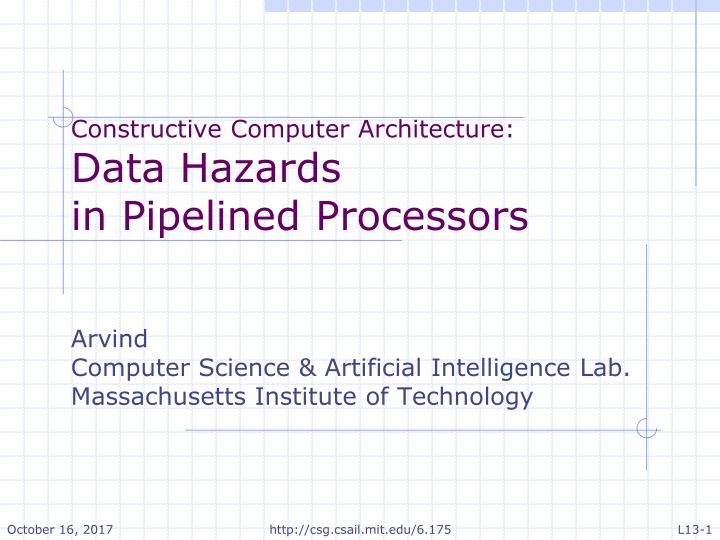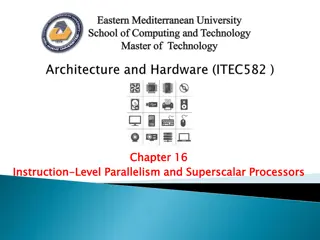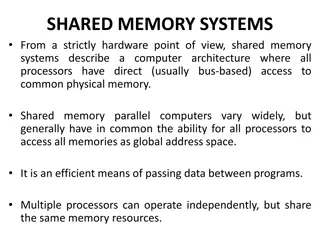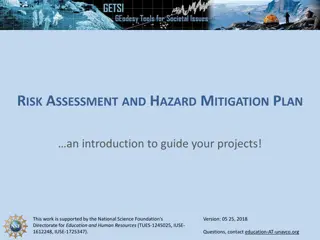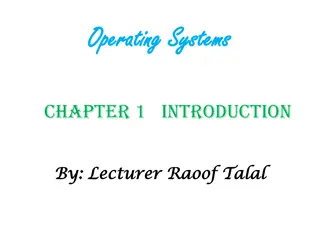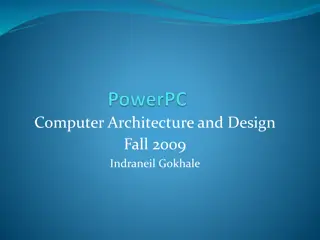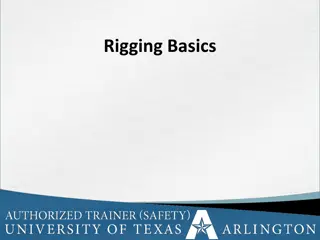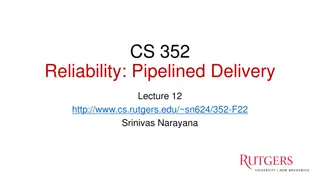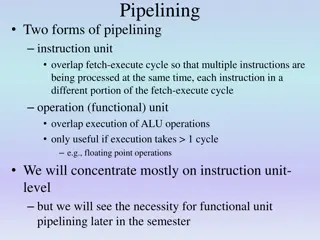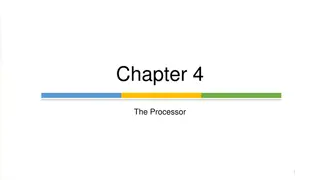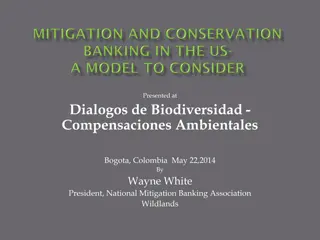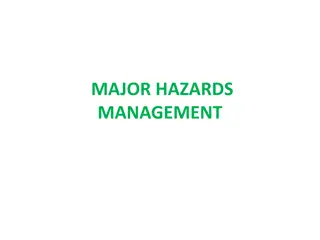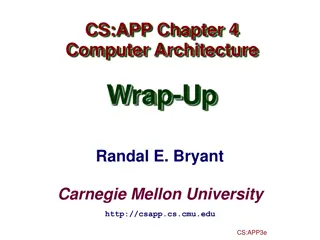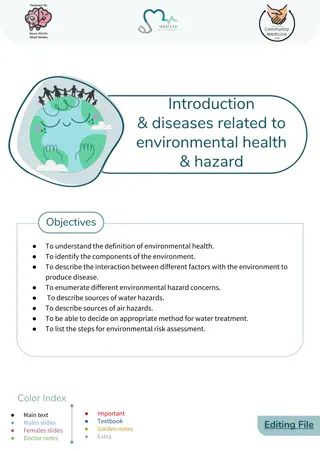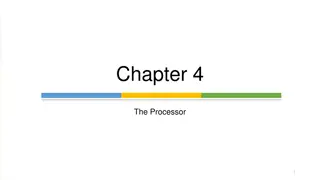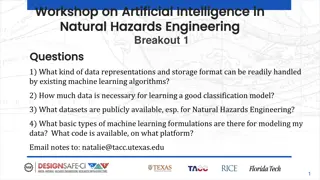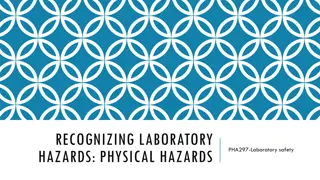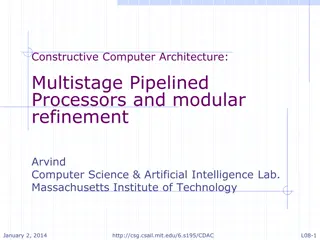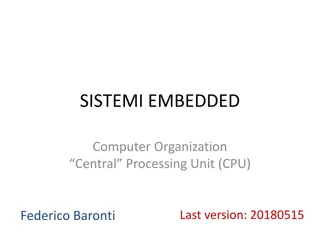Data Hazards in Pipelined Processors: Understanding and Mitigation
Explore the concept of data hazards in pipelined processors, focusing on read-after-write (RAW) hazards and their impact on pipeline performance. Learn strategies to mitigate data hazards, such as using a scoreboard to track instructions and stall the Fetch stage when necessary. Discover how adjusting pipeline stages can help balance workload distribution.
Download Presentation

Please find below an Image/Link to download the presentation.
The content on the website is provided AS IS for your information and personal use only. It may not be sold, licensed, or shared on other websites without obtaining consent from the author.If you encounter any issues during the download, it is possible that the publisher has removed the file from their server.
You are allowed to download the files provided on this website for personal or commercial use, subject to the condition that they are used lawfully. All files are the property of their respective owners.
The content on the website is provided AS IS for your information and personal use only. It may not be sold, licensed, or shared on other websites without obtaining consent from the author.
E N D
Presentation Transcript
Constructive Computer Architecture: Data Hazards in Pipelined Processors Arvind Computer Science & Artificial Intelligence Lab. Massachusetts Institute of Technology October 16, 2017 http://csg.csail.mit.edu/6.175 L13-1
Consider a different two- stage pipeline Fetch Decode, RegisterFetch Execute, Memory, WriteBack Register File Insti Insti+1 nap PC Execute Decode f2d Inst Data Memory Use the same epoch solution for control hazards as before Memory Suppose we move the pipeline stage from Fetch to after Decode and Register fetch for a better balance of work in two stages Pipeline will still have control hazards and we can use the epoch-based solution as before October 16, 2017 http://csg.csail.mit.edu/6.175 L13-2
Converting the old pipeline into the new one rule doFetch; ... let instF = iMem.req(pc); f2d.enq(Fetch2Execute{... inst: instF ...}); ... endrule rule doExecute; let x = f2e.first; let instD=x.inst; let pcD=x.pc; let inEp=x.epoch; ... let dInst = decode(instD); let rVal1 = rf.rd1(fromMaybe(?, dInst.src1)); let rVal2 = rf.rd2(fromMaybe(?, dInst.src2)); let eInst = exec(dInst, rVal1, rVal2, pcD, ppcD); ... endrule Not quite correct. Why? Fetch is potentially reading stale values from rf instF October 16, 2017 http://csg.csail.mit.edu/6.175 L13-3
Data Hazards pc rf dMem fetch & decode execute d2e time FDstage EXstage t0 t1 t2 t3 t4 t5 t6 t7 . . . . FD1 FD2 FD3 FD4 FD5 EX1 EX2 EX3 EX4 EX5 I2 must be stalled until I1 updates the register file I1 I2 R1 R2+R3 R4 R1+R2 time FDstage EXstage t0 t1 t2 t3 t4 t5 t6 t7 . . . . FD1 FD2 FD2 FD3 FD4 FD5 EX1 EX2 EX3 EX4 EX5 October 16, 2017 http://csg.csail.mit.edu/6.175 L13-4
Dealing with data hazards Keep track of instructions in the pipeline and determine if the register values to be fetched are stale, i.e., will be modified by some older instruction still in the pipeline. This condition is referred to as a read-after-write (RAW) hazard Stall the Fetch from dispatching the instruction as long as RAW hazard prevails RAW hazard will disappear as the pipeline drains Scoreboard: A data structure to keep track of the instructions in the pipeline beyond the Fetch stage October 16, 2017 http://csg.csail.mit.edu/6.175 L13-5
Data Hazard Data hazard depends upon the match between the source registers of the fetched instruction and the destination register of an instruction already in the pipeline Both the source and destination registers must be Valid for a hazard to exist function Bool isFound (Maybe#(RIndex) x, Maybe#(RIndex) y); if(x matches Valid .xv &&& y matches Valid .yv return True; elsereturn False; endfunction &&& yv == xv) October 16, 2017 http://csg.csail.mit.edu/6.175 L13-6
Scoreboard: Keeping track of instructions in execution Scoreboard: a data structure to keep track of the destination registers of the instructions beyond the fetch stage method insert: inserts the destination (if any) of an instruction in the scoreboard when the instruction is decoded method search1(src): searches the scoreboard for a data hazard method search2(src): same as search1 method remove: deletes the oldest entry when an instruction commits October 16, 2017 http://csg.csail.mit.edu/6.175 L13-7
2-Stage-DH pipeline: Scoreboard and Stall logic epoch Register File redirect nap PC Execute Decode d2e Data Memory Inst scoreboard Memory October 16, 2017 http://csg.csail.mit.edu/6.175 L13-8
2-Stage-DH pipeline module mkProc(Proc); EHR#(2,Addr) pc <- mkEHR(U); RFile rf <- mkRFile; IMemory iMem <- mkIMemory; DMemory dMem <- mkDMemory; Fifo#(Decode2Execute) d2e <- mkFifo; Reg#(Bool) epoch <- mkReg(False); Scoreboard#(n) sb <- mkScoreboard; // n, the number of slots in the sb must be // the number of instructions in the Execute // phse (including d2e) rule doFetch rule doExecute Assume doFetch < doExecute October 16, 2017 http://csg.csail.mit.edu/6.175 L13-9
2-Stage-DH pipeline doFetch rule What should happen to pc when Fetch stalls? rule doFetch; let instF = iMem.req(pc[0]); let ppcF = nap(pc[0]); pc[0] <= ppcF; let dInst = decode(instF); let stall = sb.search1(dInst.src1)|| sb.search2(dInst.src2); if(!stall) begin fetch register values d2e.enq(Decode2Execute{pc: pc, ppc: ppcF, dIinst: dInst, epoch: epoch, rVal1: rVal1, rVal2: rVal2}); sb.insert(dInst.rDst); end endrule pc should change only when the instruction is enqueued in d2e October 16, 2017 http://csg.csail.mit.edu/6.175 L13-10
2-Stage-DH pipeline doFetch rule corrected rule doFetch; let instF = iMem.req(pc[0]); let ppcF = nap(pc[0]); pc[0] <= ppcF; let dInst = decode(instF); let stall = sb.search1(dInst.src1)|| sb.search2(dInst.src2); if(!stall) begin fetch register values d2e.enq(Decode2Execute{pc: pc, ppc: ppcF, dIinst: dInst, epoch: fEpoch, rVal1: rVal1, rVal2: rVal2}); sb.insert(dInst.rDst); end endrule pc[0] <= ppcF; end To avoid structural hazards, scoreboard must allow two search ports October 16, 2017 http://csg.csail.mit.edu/6.175 L13-11
2-Stage-DH pipeline doExecute rule rule doExecute; let x = d2e.first; let dInstE = x.dInst; let pcE = x.pc; let inEp = x.epoch; let rVal1E = x.rVal1; let rVal2E = x.rVal2; if(epoch == inEp) begin let eInst = exec(dInstE, rVal1E, rVal2E, pcE); if(eInst.iType == Ld) eInst.data <- dMem.req(MemReq{op:Ld, addr:eInst.addr, data:?}); else if (eInst.iType == St) let d <- dMem.req(MemReq{op:St, addr:eInst.addr, data:eInst.data}); if (isValid(eInst.dst)) rf.wr(fromMaybe(?, eInst.dst), eInst.data); let nextPC = eInst.brTaken ? eInst.addr : pcE + 4; if (x.ppc != nextPC) begin pc[1] <= eInst.addr; end d2e.deq; sb.remove; endrule epoch <= !epoch; end The same as before October 16, 2017 http://csg.csail.mit.edu/6.175 L13-12
A correctness issue Register File wr rd1 rd2 redirect doFetch doExecute d2e search insert remove Scoreboard If the search by Decode does not see an instruction in the scoreboard, then its effect must have taken place. This means that any updates to the register file by that instruction must be visible to the subsequent register reads remove and wr should happen atomically search and rd1, rd2 should happen atomically October 16, 2017 http://csg.csail.mit.edu/6.175 L13-13
Concurrency and Performance doFetch < doExecute Register File rd1 rd2 wr redirect doFetch doExecute Bypass FIFO does not make sense here d2e search insert remove Scoreboard For correctness: rf: sb: d2e: performance ? Dead cycle after each misprediction Dead cycle after each RAW hazard Maybe we should consider doExecute < doFetch even though the clock cycle may be a bit longer rd < wr (normal rf) {search, insert} < remove enq {<, CF} {deq, first} (CF Fifo) October 16, 2017 http://csg.csail.mit.edu/6.175 L13-14
2-Stage-DH pipeline doExecute < doFetch rule doFetch; let instF = iMem.req(pc[1]); let ppcF = nap(pc[1]);; let dInst = decode(instF); let stall = sb.search1(dInst.src1)|| sb.search2(dInst.src2); if(!stall) begin fetch register values d2e.enq(Decode2Execute{pc: pc[1], ppc: ppcF, dIinst: dInst, epoch: fEpoch, rVal1: rVal1, rVal2: rVal2}); sb.insert(dInst.rDst); pc[1] <= ppcF end endrule rule doExecute; the same as before if (x.ppc != nextPC) begin pc[0] <= eInst.addr; end d2e.deq; sb.remove; endrule epoch <= !epoch; end October 16, 2017 http://csg.csail.mit.edu/6.175 L13-15
Concurrency and Performance doFetch < doExecute Register File rd1 rd2 wr redirect doFetch doExecute d2e search insert remove Scoreboard For correctness; rf: wr < rd (bypass rf) sb: remove < {search, insert} d2e: {first, deq} {<, CF} enq (pipelined or CF Fifo) To avoid a stall due to a RAW hazard between successive instructions sb: remove ? search rf: wr ? rd < (bypass rf) < Also no dead cycle after a misprediction October 16, 2017 http://csg.csail.mit.edu/6.175 L13-16
WAW hazards Can a destination register name appear more than once in the scoreboard ? If multiple instructions in the scoreboard can update the register which the current instruction wants to read, then the current instruction has to read the update for the youngest of those instructions This is not a problem in our design because instructions are committed in order the RAW hazard for the instruction at the decode stage will remain as long as the any instruction with the required destination is present in sb October 16, 2017 http://csg.csail.mit.edu/6.175 L13-17
An alternative design for sb One counter for each register in rf (Initially 0) One slot to hold rd for each instruction in the pipeline vs Insert: increment the counter for register rd Remove: decrement the counter for register rd Search: If the counter for the source register is >0, return True This design takes less hardware for deep pipelines and is more efficient because it avoids associative searches October 16, 2017 http://csg.csail.mit.edu/6.175 L13-18
Summary Instruction pipelining requires dealing with control and data hazards Speculation is necessary to deal with control hazards Data hazards are avoided by withholding instructions in the decode stage until the hazard disappears Performance issues are subtle For instance, the value of having a bypass network depends on how frequently it is exercised by programs Bypassing necessarily increases combinational path lengths which can slow down the clock The rest of the slides will be discussed in the Recitation October 16, 2017 http://csg.csail.mit.edu/6.175 L13-19
Normal Register File module mkRFile(RFile); Vector#(32,Reg#(Data)) rfile <- replicateM(mkReg(0)); method Action wr(RIndx rindx, Data data); if(rindx!=0) rfile[rindx] <= data; endmethod method Data rd1(RIndx rindx) = rfile[rindx]; method Data rd2(RIndx rindx) = rfile[rindx]; endmodule {rd1, rd2} < wr October 16, 2017 http://csg.csail.mit.edu/6.175 L13-20
Bypass Register File using EHR module mkBypassRFile(RFile); Vector#(32,Ehr#(2, Data)) rfile <- replicateM(mkEhr(0)); method Action wr(RIndx rindx, Data data); if(rindex!=0) (rfile[rindex])[0] <= data; endmethod method Data rd1(RIndx rindx) = (rfile[rindx])[1]; method Data rd2(RIndx rindx) = (rfile[rindx])[1]; endmodule wr < {rd1, rd2} October 16, 2017 http://csg.csail.mit.edu/6.175 L13-21
Bypass Register File with external bypassing module mkBypassRFile(BypassRFile); RFile rf <- mkRFile; Fifo#(1, Tuple2#(RIndx, Data)) bypass <- mkBypassSFifo; rule move; begin rf.wr(bypass.first); bypass.deq end; endrule method Action wr(RIndx rindx, Data data); if(rindex!=0) bypass.enq(tuple2(rindx, data)); endmethod method Data rd1(RIndx rindx) = return (!bypass.search1(rindx)) ? rf.rd1(rindx) : bypass.read1(rindx); method Data rd2(RIndx rindx) = return (!bypass.search2(rindx)) ? rf.rd2(rindx) : bypass.read2(rindx); endmodule rf rd move wr < {rd1, rd2} October 16, 2017 http://csg.csail.mit.edu/6.175 L13-22
Scoreboard implementation using searchable Fifos function Bool isFound (Maybe#(RIndx) dst, Maybe#(RIndx) src); return isValid(dst) && isValid(src) && (fromMaybe(?,dst)==fromMaybe(?,src)); endfunction module mkCFScoreboard(Scoreboard#(size)); SFifo#(size, Maybe#(RIndx), Maybe#(RIndx)) f <- mkCFSFifo(isFound); method insert = f.enq; method remove = f.deq; method search1 = f.search1; method search2 = f.search2; endmodule October 16, 2017 http://csg.csail.mit.edu/6.175 L13-23
